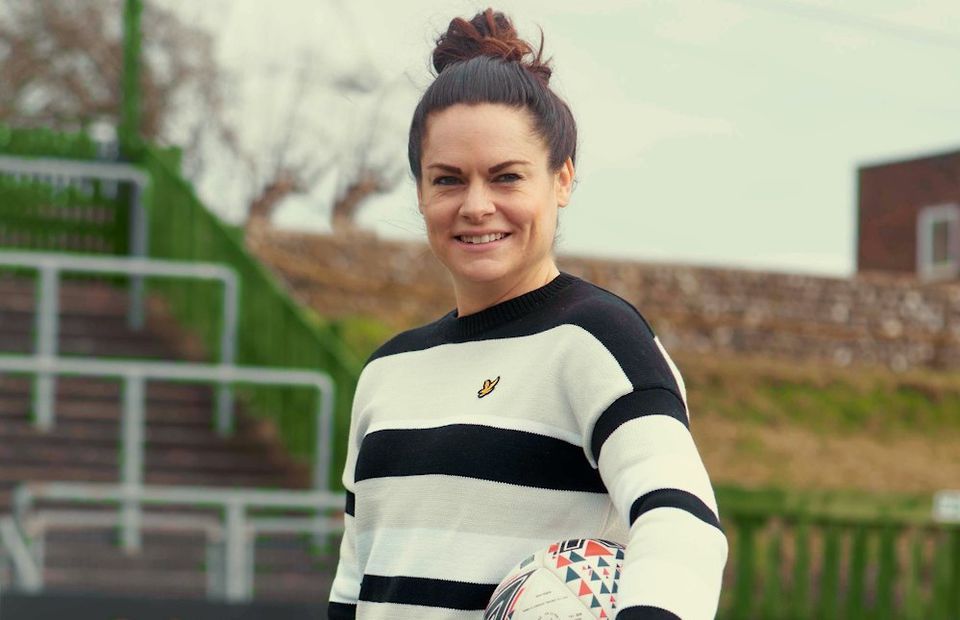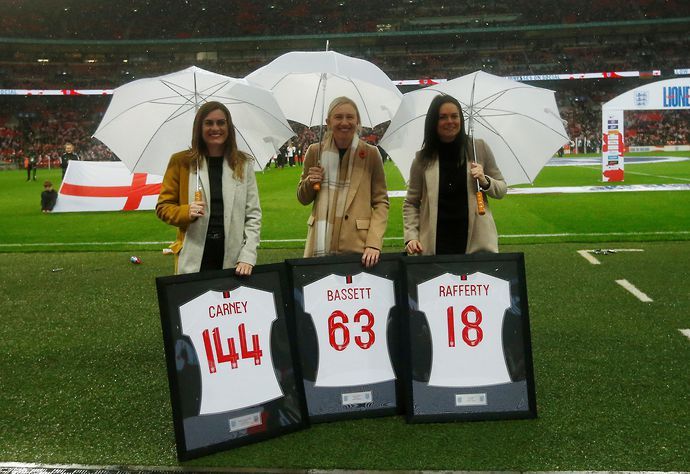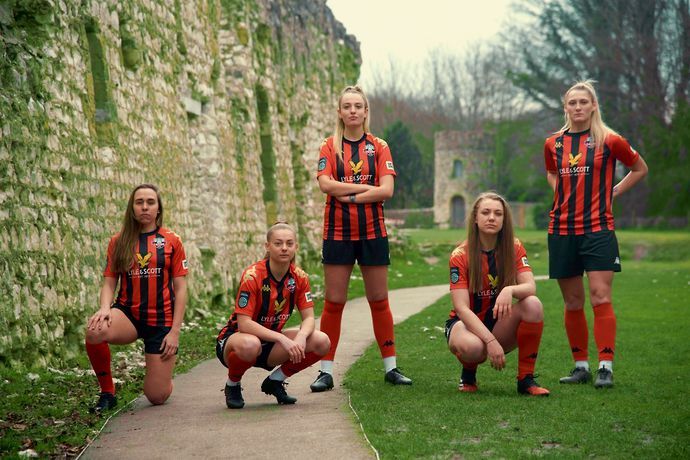This year marks the 100th anniversary of the FA's decision to ban women's football, a ban that lasted a total of 50 years. To mark the occasion, Lewes FC have teamed up with Lyle and Scott to produce a short film highlighting the long-lasting effects that have set the women's game back half a century.Former England international and Lewes board member Claire Rafferty fronts the film and discusses the changes we have seen develop within the sport. GiveMeSport Women sat down with the ex-defender to chat about her thoughts on the growth of the game since the ban was lifted.“It’s slow growth and I think that links back to the fact the sport was banned," Rafferty admitted. "We’re always playing catch up but I think for me, the biggest growth is the actual contact hours of these players training. My biggest point is always, how can you expect these women to be as good as they men when for the majority of their career, the contact hours of daily training is nowhere near comparable.“When I first started, we only trained twice a week. When you compare that to a boys’ academy, they’re in at the age of seven and every single day they’re on the pitch training. So for me, that whole infrastructure is the biggest growth that I’ve seen.”
The Women's Super League – England's top level football tier – is constantly competing to be the most exciting and talked about league within women's football. A recent surge of signings from both Australia and the United States has put the spotlight heavily on the WSL.
Rafferty's former side Chelsea boast some of the world's best talent. Sam Kerr and Pernille Harder are just two names that the WSL has managed to lure in. Global superstar Alex Morgan also recently enjoyed a loan spell with Tottenham Hotspur, following her international teammates Sam Mewis and Rose Lavelle in a move across the pond.
But as we celebrate International Women's Day, we look at how much work has been put in to get women's football to this point. It was never an overnight job and a lot of players were forced to endure glaring inequality before the big strides of the current day were put in place.
Rafferty admitted she felt the strain of inequality "throughout my whole career" and opened up on how much things have changed since her retirement in 2019.
"Even at the end of my career two years ago there was inequality," she said. "One of the biggest things I can relate to is kit sizes and not being given the right kit. Or playing on pitches that just aren't acceptable which increases injury risks."
Rafferty herself was plagued with injuries during her playing days. She suffered three ACL injuries which set her back hugely and she speaks passionately about female athletes being given the correct equipment and facilities to ensure injury probability is minimum.
You don't want to point the finger but the message it sends to players and fans is that of disrespect.
Lewes are one club that can proudly say they give equal opportunities to both their men's and women's teams. They are the only professional or semi-professional club in the world to introduce pay parity. The community-led club is striving to inspire other outfits to follow a similar route and bridge the gap between salaries for their male and female players.
"One of the reasons I’m so proud to be on the board is because of the culture and the way that they push forward for equal pay. But it’s also not just about equal pay, it’s about equal experiences and equal opportunities," Rafferty said of her role within Lewes.
It's a statement of huge importance for the East Sussex club to introduce equal pay. They have beaten some of the most successful and richest clubs in the world in setting an example on how much the women's game can truly develop. Lewes have set a huge example following on from a ban that proved truly detrimental to the sport.
“These women were kind of a shining light during the war periods," Rafferty said of the players affected due to the FA's decision back in 1921. "Dick, Kerr Ladies in particular were paving the way and I think the frustration is that obviously it was banned and we’ve had to start from scratch.
"I think we’re always playing catch up off the back of that but I think this film highlights that and it aligns really nicely with what Lewes are doing around equality.”



















